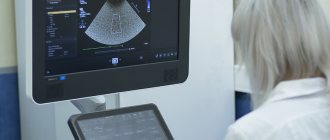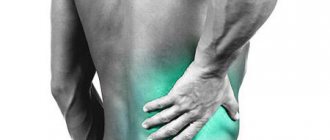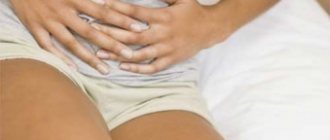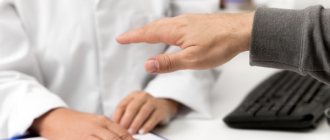What are the reasons?
Among the infections that can cause mesadenitis in a child are bacteria such as:
- coli;
- staphylococci;
- streptococci;
- salmonella;
- Mycobacterium tuberculosis.
These may also be the following viruses:
- enterovirus;
- adenovirus;
- Epstein-Barr virus;
- cytomegalovirus.
Doctors often associate the development of mesadenitis in children with the presence of diseases such as:
- pneumonia;
- flu;
- Infectious mononucleosis;
- tonsillitis;
- bronchitis.
After severe infectious diseases, a child is often diagnosed with reactive mesadenitis. In addition, this pathology often occurs in children as a specific reaction to vaccinations or uncontrolled use of certain types of medications.
How can a parent help?
If the child has not passed gas or stool for a long time, and his stomach is tense, give him a gas tube.
If the child's condition does not improve or there is no passing of gas or stool, consult a doctor. In case of prolonged attacks of colic, the child is restless outside of an attack and has poor sleep, it is necessary to exclude neurological disorders that can aggravate the course of physiological intestinal colic. Frequent and profuse regurgitation is also a reason to consult a specialist in order to exclude surgical and neurological pathologies. Fever accompanying the pain syndrome requires professional observation and differential diagnosis.
Symptoms of the disease
The main symptom of the disease is pain in the abdomen (in the upper part or in the navel area). The pain can be paroxysmal and last a long time, it can be dull and not particularly pronounced. Painful sensations become more pronounced with sudden turns of the body, lifting weights, sneezing, coughing. Often there is a feeling of nausea, there may be vomiting, and intestinal disorders.
The presence of an inflammatory process in the body causes signs of intoxication: an increase in the number of heart contractions (tachycardia) and general weakness; body temperature in acute mesadenitis can rise to 390C. In chronic cases, it is usually not high, it can rise to 37 or 37.5 and lasts a long time. With chronic mesadenitis, pain lasts for weeks or months, the child becomes lethargic, tired, and performance and mental activity decrease.
Diagnostic methods
After examination and collection of complaints and medical history, the specialist sends the child for a general examination . It includes x-rays, blood and urine tests . Additionally, the following studies may be needed:
- blood serology;
- diagnosis of tuberculosis;
- lymph node biopsy followed by cytological examination in the laboratory;
- Ultrasound.
Sometimes children are prescribed antibacterial drugs as part of the diagnosis. Based on their effectiveness, they confirm or refute the bacterial nature of the disease.
Folk remedies
Photo: wallpaperscraft.com
With such a disease, you should not hope that it will be possible to cope with it at home. Qualified medical assistance and immediate prescription of the necessary treatment are required. However, you can help your body fight the disease. You should start by following the regime. During the period of exacerbation, it is strictly bed rest; in the chronic course, you need to refrain from intense physical activity and lifting weights. It is also necessary to switch to a gentle diet. Meals should be fractional, at least 4 times a day. Dishes should be prepared in crushed or pureed form. During an exacerbation, special attention is paid to drinking plenty of fluids. This is necessary to remove toxins from the body, as a result, the symptoms of intoxication are reduced.
Infusions and decoctions of herbs will provide good help. The greatest effect for this disease is a decoction of blackberry root. The beneficial properties of blackberries have been known since ancient times. It has antipyretic, tonic, anti-inflammatory and bactericidal effects, which significantly helps in the treatment of mesadenitis.
As you know, decoctions and infusions with chamomile and calendula have analgesic and anti-inflammatory effects, which will help reduce pain and have a beneficial effect on the course of the disease.
A decoction of cumin will help normalize intestinal function. Both a decoction and an infusion of caraway seeds are used. In children under 7 years of age and in the acute stage of the disease in adults, preference is given to a decoction; in other cases, an infusion of seeds can be used.
It should be remembered that the listed options for folk remedies only help in alleviating symptoms, but for a complete recovery you should consult a doctor and strictly follow his recommendations.
The information is for reference only and is not a guide to action. Do not self-medicate. At the first symptoms of the disease, consult a doctor.
Fully or partially limited products
Should be excluded:
- fatty meat, fish, smoked meat and fish, goose and duck meat, salted fish, sausages, any types of canned food;
- animal fats and lard;
- rich broths;
- any fried foods (pies, pancakes, meat, fish, pancakes);
- fresh bread, pastries made from puff pastry, shortbread and butter dough, pastries and pies;
- legumes, radishes, turnips, radishes, white cabbage, garlic, onions, sorrel;
- eggs, hard-boiled and fried;
- all dairy products;
- hot seasonings, ketchup, mayonnaise;
- coffee, chocolate and cocoa.
Table of prohibited products
| Proteins, g | Fats, g | Carbohydrates, g | Calories, kcal | |
Vegetables and greens | ||||
| canned vegetables | 1,5 | 0,2 | 5,5 | 30 |
| swede | 1,2 | 0,1 | 7,7 | 37 |
| peas | 6,0 | 0,0 | 9,0 | 60 |
| bulb onions | 1,4 | 0,0 | 10,4 | 41 |
| chickpeas | 19,0 | 6,0 | 61,0 | 364 |
| radish | 1,2 | 0,1 | 3,4 | 19 |
| white radish | 1,4 | 0,0 | 4,1 | 21 |
| beans | 7,8 | 0,5 | 21,5 | 123 |
| horseradish | 3,2 | 0,4 | 10,5 | 56 |
| spinach | 2,9 | 0,3 | 2,0 | 22 |
| sorrel | 1,5 | 0,3 | 2,9 | 19 |
Berries | ||||
| grape | 0,6 | 0,2 | 16,8 | 65 |
Mushrooms | ||||
| mushrooms | 3,5 | 2,0 | 2,5 | 30 |
| marinated mushrooms | 2,2 | 0,4 | 0,0 | 20 |
Nuts and dried fruits | ||||
| nuts | 15,0 | 40,0 | 20,0 | 500 |
| almond | 18,6 | 57,7 | 16,2 | 645 |
Snacks | ||||
| potato chips | 5,5 | 30,0 | 53,0 | 520 |
Cereals and porridges | ||||
| corn grits | 8,3 | 1,2 | 75,0 | 337 |
| pearl barley | 9,3 | 1,1 | 73,7 | 320 |
Flour and pasta | ||||
| vareniki | 7,6 | 2,3 | 18,7 | 155 |
| dumplings | 11,9 | 12,4 | 29,0 | 275 |
Bakery products | ||||
| buns | 7,9 | 9,4 | 55,5 | 339 |
| Rye bread | 6,6 | 1,2 | 34,2 | 165 |
Confectionery | ||||
| pastry cream | 0,2 | 26,0 | 16,5 | 300 |
| shortbread dough | 6,5 | 21,6 | 49,9 | 403 |
Ice cream | ||||
| ice cream | 3,7 | 6,9 | 22,1 | 189 |
Chocolate | ||||
| chocolate | 5,4 | 35,3 | 56,5 | 544 |
Raw materials and seasonings | ||||
| mustard | 5,7 | 6,4 | 22,0 | 162 |
| mayonnaise | 2,4 | 67,0 | 3,9 | 627 |
Dairy | ||||
| milk 4.5% | 3,1 | 4,5 | 4,7 | 72 |
| cream 35% (fat) | 2,5 | 35,0 | 3,0 | 337 |
| whipped cream | 3,2 | 22,2 | 12,5 | 257 |
Cheeses and cottage cheese | ||||
| parmesan cheese | 33,0 | 28,0 | 0,0 | 392 |
Meat products | ||||
| fatty pork | 11,4 | 49,3 | 0,0 | 489 |
| salo | 2,4 | 89,0 | 0,0 | 797 |
| bacon | 23,0 | 45,0 | 0,0 | 500 |
Sausages | ||||
| smoked sausage | 9,9 | 63,2 | 0,3 | 608 |
Bird | ||||
| smoked chicken | 27,5 | 8,2 | 0,0 | 184 |
| duck | 16,5 | 61,2 | 0,0 | 346 |
| smoked duck | 19,0 | 28,4 | 0,0 | 337 |
| goose | 16,1 | 33,3 | 0,0 | 364 |
Fish and seafood | ||||
| smoked fish | 26,8 | 9,9 | 0,0 | 196 |
| black caviar | 28,0 | 9,7 | 0,0 | 203 |
| salmon caviar granular | 32,0 | 15,0 | 0,0 | 263 |
| salmon | 19,8 | 6,3 | 0,0 | 142 |
| canned fish | 17,5 | 2,0 | 0,0 | 88 |
| salmon | 21,6 | 6,0 | — | 140 |
| trout | 19,2 | 2,1 | — | 97 |
Oils and fats | ||||
| animal fat | 0,0 | 99,7 | 0,0 | 897 |
| cooking fat | 0,0 | 99,7 | 0,0 | 897 |
Non-alcoholic drinks | ||||
| soda water | 0,0 | 0,0 | 0,0 | — |
| cola | 0,0 | 0,0 | 10,4 | 42 |
| instant coffee dry | 15,0 | 3,5 | 0,0 | 94 |
| sprite | 0,1 | 0,0 | 7,0 | 29 |
| * data is per 100 g of product | ||||
Prices
| Name of service (price list incomplete) | Price |
| Appointment (examination, consultation) with an allergist-immunologist, primary, therapeutic and diagnostic, outpatient | 1750 rub. |
| Consultation (interpretation) with analyzes from third parties | 2250 rub. |
| Prescription of treatment regimen (for up to 1 month) | 1800 rub. |
| Prescription of treatment regimen (for a period of 1 month) | 2700 rub. |
| Consultation with a candidate of medical sciences | 2500 rub. |
| Allergen-specific immunotherapy (ASIT) - maintenance course (excluding the cost of the drug) | 8100 rub. |
Medicines
Photo: prostatit.guru
Antibacterial drugs are a mandatory component of the treatment of mesadenitis, as they are aimed at eliminating the cause of the disease. Broad-spectrum antibiotics are prescribed (3rd generation cephalosporins (cefotaxime, ceftriaxone, cefixime), 2nd generation fluoroquinolones (ciprofloxacin, ofloxacin)).
From the group of antispasmodics, preference is given to drugs such as drotaverine and papaverine. Their action is aimed at relieving spasm and, as a result, eliminating pain. Painkillers include analgin and ketorolac (for more intense pain).
It should be remembered that the doctor selects medications. Taking medications without a doctor’s recommendations is strictly prohibited, since each drug is selected individually, taking into account the characteristics of the course of the disease and the presence of concomitant pathologies.
Consequences and complications
If the disease progresses, suppuration of the lymph node, the appearance of an abscess and the development of purulent mesadenitis may occur. If purulent mesadenitis is not treated in a timely manner, the abscess will likely melt and break through into the peritoneum, which will lead to peritonitis.
With a long course of the disease, adhesive disease of the abdominal organs may develop, which becomes dangerous due to the risk of developing intestinal obstruction.
If microorganisms enter the bloodstream, sepsis , a very dangerous condition that can be fatal.
In some rare cases, generalization of the process is possible, which leads to extensive inflammation of the body's lymph nodes.
Tuberculous mesadenitis can be complicated by an abscess , peritonitis , sepsis , intestinal obstruction , and adhesive disease .
Menu (Power Mode)
In any case, a child’s diet should be appropriate for his age and contain the required amount of protein, complex carbohydrates and vitamins. With this disease, food should be gentle and easily digestible. This includes protein from dairy products, fish and egg dishes. During treatment, the fat content is reduced by eliminating fatty foods and frying foods. Portions should be small - it is better to have snacks more often and not burden the provoked intestines.
| Breakfast |
|
| Lunch |
|
| Dinner |
|
| Afternoon snack |
|
| Dinner |
|
| For the night |
|
| Breakfast |
|
| Lunch |
|
| Dinner |
|
| Afternoon snack |
|
| Dinner |
|
| For the night |
|
| Breakfast |
|
| Lunch |
|
| Dinner |
|
| Afternoon snack |
|
| Dinner |
|
| For the night |
|
| Breakfast |
|
| Lunch |
|
| Dinner |
|
| Afternoon snack |
|
| Dinner |
|
| For the night |
|
Treatment methods
Enlarged lymph nodes are not an independent disease, but a symptom of some other disease. Therefore, therapy in this case comes down to eliminating the root cause of this reaction. The rate at which nodes return to normal size varies, depending on the severity and type of underlying disease.
If a child gets sick very often, then immunomodulators are recommended to strengthen the body's defenses. The choice of drug should be made only by a doctor.
Important! Enlarged lymph nodes should not be heated - this can lead to the development of suppuration and blood poisoning! Any self-medication is prohibited - the reason and type of therapy is determined by a specialist.
List of sources
- Berebitsky, S.S. Mesenteric lymphadenitis. Classification, treatment / S.S. Berebitsky // Second Zakharyin Readings: abstracts of reports of the scientific and practical conference. Penza, 1995. - pp. 75-76.
- Grushlavsky, G.L. Observation of nonspecific mesenteric lymphadenitis / G.L. Grushlavsky // Clinical medicine. 1970.- No. 12. - P. 113-114.
- Elufimova, V.F. A rare combination of tuberculosis of the mesenteric lymph nodes and the gastric mucosa in a child / V.F. Elufimova, L.E. Gedymin // Problems of tuberculosis. 1998. - No. 2. - P. 53-54.
- Rizakhanov, D.M., Diagnosis and treatment tactics for acute mesoadenitis in the clinic of intestinal infections: abstract. dis. Ph.D. honey. Sci. -M., 2003.-20 p.
Authorized Products
The diet for mesadenitis in children includes:
- Low-fat meat and fish dishes that can be prepared from beef, veal, rabbit, chicken, turkey, cod, pike, whiting, pike perch, pollock, navaga, hake. The choice of dishes is varied and depends entirely on your child's preferences. It can be simply boiled meat or fish, cutlets, meatballs, meatballs, pates, soufflés. Remember that they all must be steamed or oven-cooked.
- Vegetarian soups (with vegetable broth or water). Usually these are a variety of cereal soups or with soft pasta, since children are reluctant to eat vegetable soups. During illness, avoid eating okroshka, neck with sauerkraut, and borscht (due to the presence of cabbage and tomato dressing). It is not allowed to fry vegetables to season soups. Milk soups are also recommended.
- Dried wheat bread, since fresh, and especially warm, recently baked bread, causes excessive intestinal bloating and discomfort, which should be avoided with this disease. You can offer your child unsweetened crackers, crackers, not very sweet dried biscuits and biscuits. Sweet croutons, especially those with raisins, are not advisable, as they can also increase bloating.
- Steamed omelettes and soft-boiled eggs (hard-boiled eggs are difficult to digest).
- Low-fat dairy products. It is better to give preference to fermented milk drinks, taking into account the existing loosening of the stool. In case of inflammatory processes in the abdominal cavity, whole milk can cause bloating and discomfort. If the child is well tolerated and has no stool disorders, you can prepare porridge with water for your child, but with the addition of milk. It is recommended to use low-fat cottage cheese in its natural form with dried fruits. If your child does not eat cottage cheese in its natural form, try making cottage cheese souffles and casseroles with a small amount of semolina. You can add slices of peeled apple and pumpkin to casseroles. Curd dishes are served with a small amount of low-fat sour cream.
- Butter (vegetable) oil in the amount of 0.5 tsp. Add to a portion of porridge or vegetable puree.
- Buckwheat, rice, and oatmeal are considered porridges with coarse fiber, so they will be most suitable during illness.
- Baked, boiled and stewed vegetables irritate the mucous membrane and stimulate intestinal motility to a lesser extent than raw ones, therefore they are most acceptable for this disease. In addition, processed fiber does not cause flatulence to the same extent as raw fiber. Initially, it is worth excluding coarse and irritating vegetables (radish, radish, mushrooms, parsnips, celery, garlic). Dishes can be seasoned with a small amount of dried dill and parsley.
- Eating homemade sauces based on low-fat milk and sour cream. They can be used when baking fish, cutlets and meatballs.
- It is better to consume fruits and berries in the form of purees, compotes and jelly, since fresh ones can cause increased pain.
- For sweets, a small amount of honey and homemade jam is allowed.
- During the day, the child can drink a decoction of rosehip, sea buckthorn, rowan, viburnum, weak tea, chamomile and sage tea, freshly squeezed vegetable and fruit juices.
Table of permitted products
| Proteins, g | Fats, g | Carbohydrates, g | Calories, kcal | |
Vegetables and greens | ||||
| eggplant | 1,2 | 0,1 | 4,5 | 24 |
| zucchini | 0,6 | 0,3 | 4,6 | 24 |
| cabbage | 1,8 | 0,1 | 4,7 | 27 |
| broccoli | 3,0 | 0,4 | 5,2 | 28 |
| carrot | 1,3 | 0,1 | 6,9 | 32 |
| cucumbers | 0,8 | 0,1 | 2,8 | 15 |
| parsley | 3,7 | 0,4 | 7,6 | 47 |
| tomatoes | 0,6 | 0,2 | 4,2 | 20 |
| pumpkin | 1,3 | 0,3 | 7,7 | 28 |
| dill | 2,5 | 0,5 | 6,3 | 38 |
Fruits | ||||
| bananas | 1,5 | 0,2 | 21,8 | 95 |
| apples | 0,4 | 0,4 | 9,8 | 47 |
Nuts and dried fruits | ||||
| raisin | 2,9 | 0,6 | 66,0 | 264 |
| dried figs | 3,1 | 0,8 | 57,9 | 257 |
| dried apricots | 5,2 | 0,3 | 51,0 | 215 |
| dried apricots | 5,0 | 0,4 | 50,6 | 213 |
| prunes | 2,3 | 0,7 | 57,5 | 231 |
Cereals and porridges | ||||
| buckwheat (kernel) | 12,6 | 3,3 | 62,1 | 313 |
| oat groats | 12,3 | 6,1 | 59,5 | 342 |
| rice | 6,7 | 0,7 | 78,9 | 344 |
Flour and pasta | ||||
| pasta | 10,4 | 1,1 | 69,7 | 337 |
| noodles | 12,0 | 3,7 | 60,1 | 322 |
| buckwheat noodles | 14,7 | 0,9 | 70,5 | 348 |
Bakery products | ||||
| wheat bread | 8,1 | 1,0 | 48,8 | 242 |
Confectionery | ||||
| jelly | 2,7 | 0,0 | 17,9 | 79 |
| Maria cookies | 8,7 | 8,8 | 70,9 | 400 |
Raw materials and seasonings | ||||
| honey | 0,8 | 0,0 | 81,5 | 329 |
| sugar | 0,0 | 0,0 | 99,7 | 398 |
Dairy | ||||
| kefir 1.5% | 3,3 | 1,5 | 3,6 | 41 |
| Ryazhenka | 2,8 | 4,0 | 4,2 | 67 |
Cheeses and cottage cheese | ||||
| cottage cheese 1% | 16,3 | 1,0 | 1,3 | 79 |
Meat products | ||||
| beef | 18,9 | 19,4 | 0,0 | 187 |
| rabbit | 21,0 | 8,0 | 0,0 | 156 |
Bird | ||||
| boiled chicken breast | 29,8 | 1,8 | 0,5 | 137 |
| boiled chicken drumstick | 27,0 | 5,6 | 0,0 | 158 |
| boiled turkey fillet | 25,0 | 1,0 | — | 130 |
Eggs | ||||
| soft-boiled chicken eggs | 12,8 | 11,6 | 0,8 | 159 |
Fish and seafood | ||||
| flounder | 16,5 | 1,8 | 0,0 | 83 |
| pollock | 15,9 | 0,9 | 0,0 | 72 |
| cod | 17,7 | 0,7 | — | 78 |
| hake | 16,6 | 2,2 | 0,0 | 86 |
Oils and fats | ||||
| butter | 0,5 | 82,5 | 0,8 | 748 |
| olive oil | 0,0 | 99,8 | 0,0 | 898 |
| sunflower oil | 0,0 | 99,9 | 0,0 | 899 |
Non-alcoholic drinks | ||||
| water | 0,0 | 0,0 | 0,0 | — |
| mineral water | 0,0 | 0,0 | 0,0 | — |
| green tea | 0,0 | 0,0 | 0,0 | — |
Juices and compotes | ||||
| apricot juice | 0,9 | 0,1 | 9,0 | 38 |
| carrot juice | 1,1 | 0,1 | 6,4 | 28 |
| peach juice | 0,9 | 0,1 | 9,5 | 40 |
| plum juice | 0,8 | 0,0 | 9,6 | 39 |
| tomato juice | 1,1 | 0,2 | 3,8 | 21 |
| pumpkin juice | 0,0 | 0,0 | 9,0 | 38 |
| rose hip juice | 0,1 | 0,0 | 17,6 | 70 |
| * data is per 100 g of product | ||||









